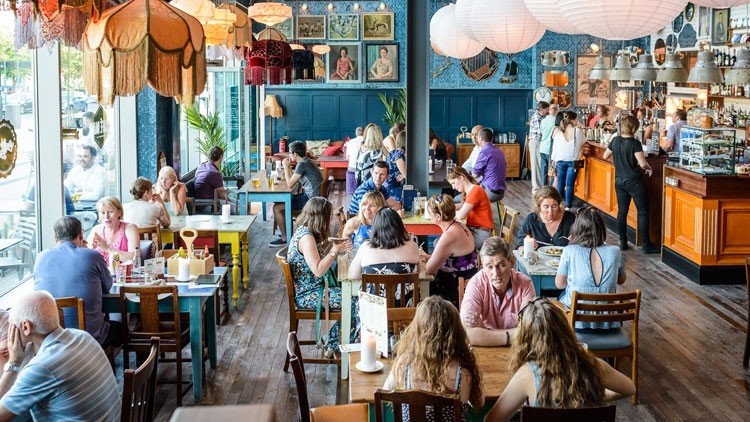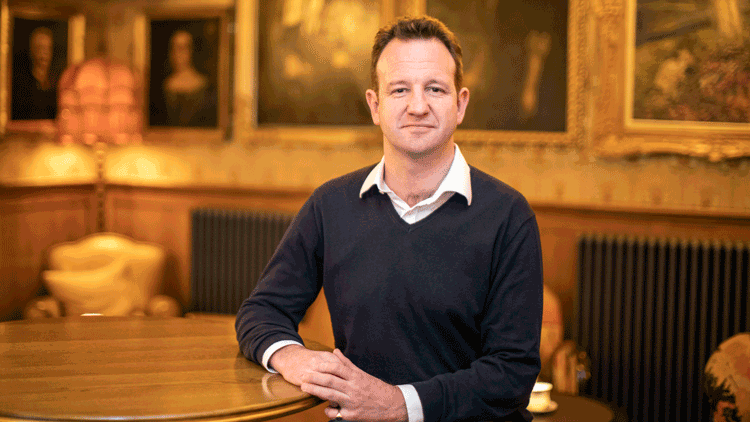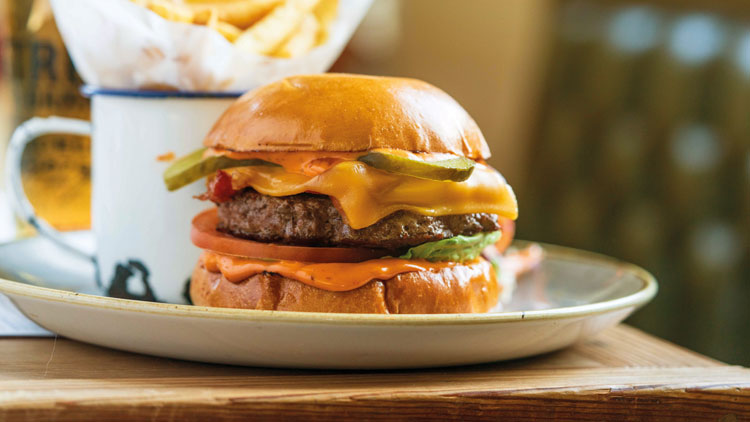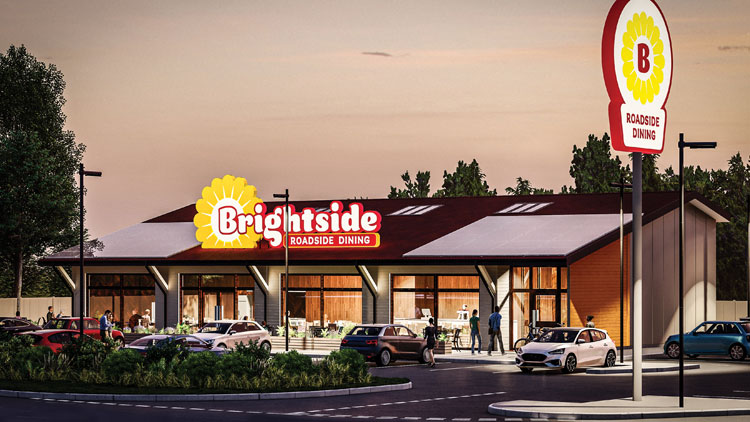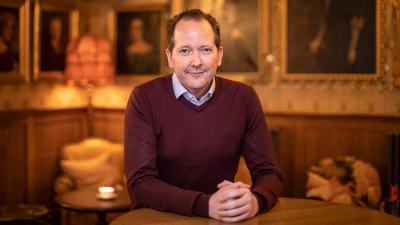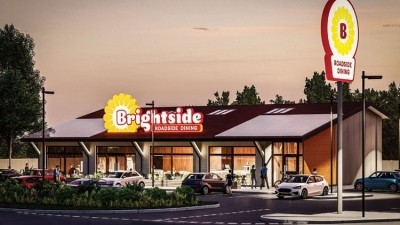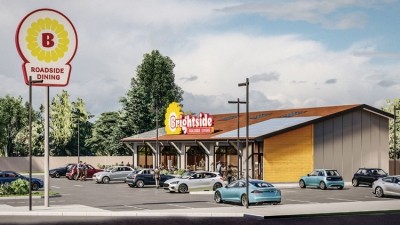Business Profile
Driving ambition: all-day restaurant group Loungers on its road to success
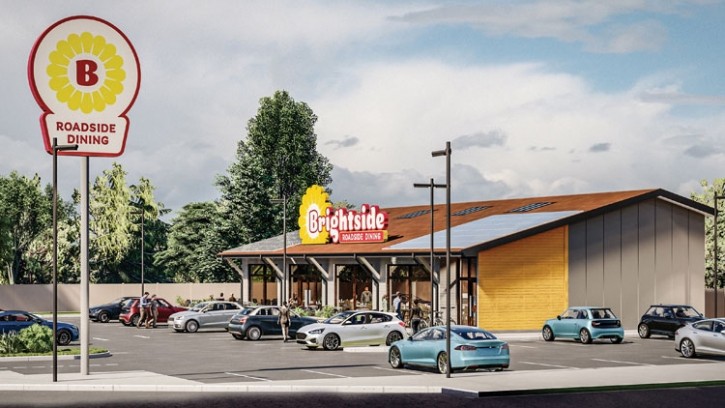
What plans might a hospitality business that spent the best part of 18 months dealing with different Government-imposed lockdowns in England and Wales before being faced with soaring inflation and rising energy bills and a paucity of staff in the sector put in place for the coming years? One could - and prudently so given the current climate - see it as an opportunity to take stock, batten down the hatches and weather what looks to be some pretty turbulent months ahead.
But not if you’re Loungers. Not only is the all-day restaurant and bar group planning to keep on the expansion trail over the coming few years it is accelerating its growth, with a view to open a not trivial 30 sites a year.
You have to admire its chutzpah. Or at least you could if the company saw it as a particularly bold move. Yet for the group, which started out in a Bristol suburb in 2002, it’s just business as usual, as Nick Collins, chief executive officer, explains.
“Thirty sites a year does sound like quite a lot but then it’s important to remember that for each of the last seven years we’ve opened more than 20 sites. If you remove the Covid year, it’s three years where we’ve opened in excess of 25 sites each. So, while it’s a big number it’s not one that we find particularly intimidating. I don’t think of it as a particularly aggressive; this is a level of openings that we are very comfortable with.”
A model for growth
It is the way in which Loungers operates that means that while other businesses are looking at growth more tentatively in the current trading environment, it is pushing ahead with its plans. With a business model that sees the Lounge brand pitch up on high street sites in suburban areas and the Cosy Club brand open in the centre of large market towns the company is not short of available properties from which to choose, with the events of the past few years presenting even more opportunities than usual.
“We’ve always found it relatively straightforward finding appropriate sites,” says Collins. “Over the past six or seven years it has probably become a bit easier and that’s largely as a result of the shift from retail and banking online and that has meant better opportunities for us on the high street.”
"We’re effectively 33% a construction
company - because there’s not enough
complexity in operating lots of café bars
and restaurants"
Collins acknowledges that more recently the company has benefited from company CVAs, leading to site closures, but says this has been more on the retail side of things rather than restaurants.
“One of the things we get told a lot is that we must be finding it easy to get more sites now because of the casual dining CVAs, but that’s absolutely not the case. We typically open in former retail premises or banks. We do take on the occasional former restaurant but it’s not what we primarily do.”
Building a company
There’s another reason behind Loungers’ ability to keep on the path of expansion and that’s down to its ability to fit out its own sites. From around 2008 the company took the decision to have its own construction arm meaning that it can take on sites and turn them into Lounges or Cosy Clubs with relative ease.
“We’re quite unique in the respect that we build them ourselves, it’s a really important part of our business,” says Collins, who adds that the company now has five fit out teams as well as a regular band of subcontractors that have worked with the company for the past 15 years. “Doing it ourselves gives us the flexibility, cost efficiency and the creativity. Our subcontractors have been involved in every single Lounge and Cosy Club and are a really important part of the team because they are incredibly reliable and consistent.
“Moving from 25 sites to 30, we are confident we can fit out those sites. We’re effectively 33% a construction company - because there’s not enough complexity in operating lots of café bars and restaurants,” he adds wryly.
The company employs around 20-30 people for the design, planning and fit out and five or six directly employed in each build team, with subcontractors being employed where required. It is typically on site for six weeks for a new Lounge and during that time it has the flexibility to change its mind from a design perspective. This means that the design team can give a nod to something just discovered in a building or incorporate something into the design that is relevant to the town or community without too much additional effort.
There are some barriers to growth, even for Loungers, the main one being staffing. In the previous financial year, the company opened 27 venues creating in excess of 700 additional jobs and Collins admits it is getting harder to find the right staff than in previous years. Staff recruitment plays a key role, as does retention.
“As a business we offer great progression opportunities for people who want a career in hospitality. There are many examples of juniors working through the ranks, which we are really proud of. Since Covid and Brexit recruitment has got harder and we’re working really hard to make sure as that an employer we are as attractive as possible. We need to ensure that the values we represent as an employer are consistently upheld and demonstrated across all our sites.”
Operating in the current climate
With such bold expansion plans, Loungers has an optimistic view of the future that Collins attributes to the board and its backers. “We are quite good at looking forward. It’s a discipline that has been instilled in us with two lots of good private equity backers and our non execs, who have all consistently demanded that we are looking ahead. You could argue we don’t do it enough.”
In August this year co-founder and executive chairman Alex Reilley made the headlines by revealing that if the business had to enter into a hedge on its energy prices it would have cost an extra £17m. Is this the kind of foresight Collins is talking about?
“Hedging is a discipline which, for a business of our size, is just really prudent financial practice,” he insists. “It’s not a case of guessing what energy prices will be doing two or three years hence but about knowing for sure what your bills will be. We are fortunate to be in the position we are.”
Any new restaurants that are opened don’t benefit from this energy price hedge, but Collins says that itself isn’t a deterrent to opening them. “It’s definitely still worth growing, we sense that the massive spike we’re seeing [in costs] is not particularly long term.”
Rather, what it does do is lay bare the struggles that businesses that haven’t got their energy bills in check are experiencing. “We’re talking a three, four or even fivefold increase in bills for some businesses, which is not sustainable,” he adds. “Our industry works on tight margins, if your utility bills are 2% of your sales and that increases fivefold that’s the difference between profit and loss. There are very few businesses with significant cash reserves to be able to withstand the losses.”
A broad appeal
Loungers’ size means it is able to mitigate other inflationary pressures, and its menus provide flexibility to be able to minimise some of the higher cost increases, says Collins. He also believes its brand positioning and target customers, which range from all different age categories and demographics across England and Wales, means that the company will benefit from people trading downwards as their discretionary income takes a hit.
“We are a very broad church; we appeal to everybody and have to offer value for money so that clearly puts pressure on our margins. In a Lounge it’s still for £9.50 for a burger and fries - we are very protective of our entry level price points. We are never going to be the cheapest out there but when there’s a squeeze on discretionary spending – which is inevitable – some customers will visit less frequently but we know we will benefit from people trading down and staying local. Over the past three or four years we have been very cautious about increasing prices, which puts us in a strong position.”
“We’ve had the itch for a while now to
create a roadside restaurant concept
that’s fit-for-purpose in the twenty-first century"
Average spend per head might drop, but this not a figure the company tracks, with customers coming in for a coffee one day, for a few pints another and for food on yet another occasion. Tracking menu prices against competitors is also something that is difficult to do.
“We do try to monitor other operators’ price increase against ours but trying to identify a single competitor is hard because we compete against everyone - Costa, Nero and Starbucks in the morning, independent café and restaurants at lunch and pubs and restaurants in the evening.”
Hitting the road
It is this broad church of appeal that informs Loungers’ future ambitions, with the company believing it can more than double its estate to 500 venues in the coming years. It currently operates around 205 sites, 170 of which are Lounges, with Wales still a nascent market and Scotland untapped territory.
“We’re not in Scotland yet. It’s not because we’ve got something against the Scottish, we’re very excited about its potential, but our expansion strategy has always been that if we jump too far from our heartland to a location where no we have no strength in depth it makes opening sites much more difficult. We generally nudge out. Bristol is our heartland and Durham is as far north as we have gone - there are huge swathes of the north east and west and even south east where we have sites but where there are loads more to go for.”
Closer on the horizon is the creation of a new brand that the company hopes will reverse the fortunes of the roadside diner. Called Brightside, the brand has a pleasingly retro feel to it designed to fill the void left by the demise of brands such as Little Chef and Happy Eater.
The first will open on the A38, south of Exeter, in February 2023, followed by another on the A303 near Honiton, and a further one on the A38 near Saltash, both opening in the spring.
Unsurprisingly, the company believes there is scope for Brightside to become a truly national brand, one that will bring ‘genuine hospitality’ back to a sector that has been dominated by drive-thru and QSR concepts in recent years.
“We’ve had the itch for a while now to create a roadside restaurant concept that’s fit-for-purpose in the twenty-first century,” says Loungers founder and chairman Alex Reilley.
“For many people, the highlight of childhood road trips in days gone by was a stop at the likes of Little Chef.”
Once the domination of England’s roadsides has commenced, the company’s attention will eventually turn north of the border.
“In the coming years we will get to Scotland because there is a lot of opportunities there. From a Lounge perspective in particular there are still so many places to go for,” says Collins.
“Our brands have never looked more relevant, and we’re excited about the future.”
